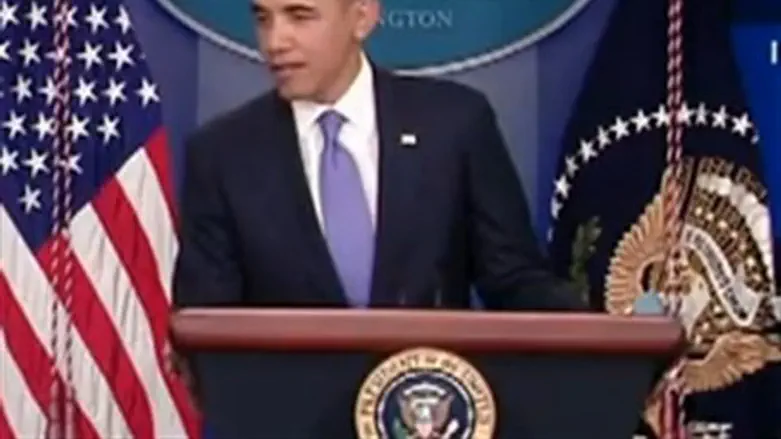
US President Barack Obama on Thursday told senior Pentagon officials that he would be conducting a "strategic review" of the defense budget.
While Obama avoided getting into the details of what he is hailing as "a major shift in defense policy," he did indicate the US military would be “leaner, but... agile, flexible and ready for the full range of contingencies and threats”.
However, sources close to the issue say Obama is after a deep reduction of 490,000 troops and as much as $1 trillion in military funding "without compromising national security."
Some $487 billion in automatic cuts will be enforced over 10 years due to an inability by the defense super-committee to set priorities, but his plans could entail an additional $500 billion in reductions, according to reports.
“We’re turning the page on a decade of war,” Obama said in a letter accompanying the new strategy, “We must put our fiscal house in order here at home and renew our long-term economic strength.”
Without mentioning the rise of China and Iran as the next global power threats, Obama said, “We'll be strengthening our presence in the Asia Pacific, and budget reductions will not come at the expense of this critical region.”
Speaking after Obama, Defence Secretary Leon Panetta said the need to "reshape America's priorities" came in light of a “debt problem at home that is itself a national security risk”.
“Savings we've been mandated to achieve must be determined by strategy, not numbers alone,” Panetta added, noting the Asia-Pacific and West Asia regions were “the areas where we see the greatest challenges for the future.”
While there is a general consensus among US lawmakers that defense cuts are required, Obama's new strategic vision may find itself under fire not only by lawmakers seeking to protect military dollars for their districts - but on the campaign trail.
Of principle concern is the shift away from America's long-term strategic posture of maintaining the ability to fight two sustained ground wars at one time. It would also preclude the ability to pursue a broad ongoing counter-insurgency such as those carried out in Iraq and Afghanistan.
Instead, Obama hopes to convince the nation that fighting and defeating one adversary, spoiling a second malefactor's aspirations, and maintaining enough flexibility for contingency and relief operations is sufficient.
It maintains a focus on intelligence gathering, special operations, surveillance and reconnaissance and would likely benefit the Marine Corps, whose bases and forces are heavily centered on the Pacific.
Analysts say Obama's strategy is nothing new and has been hotly debated as a potential future posture by lawmakers, senior defense officials, and top commanders since the end of the Cold War.
Nonetheless, deep cuts without broad consensus on priorities are likely to strain Obama's already difficult relationship with the military – and could lead to a shooting war between Obama and the Pentagon during an election year.
